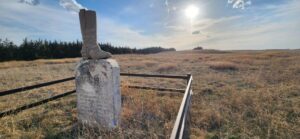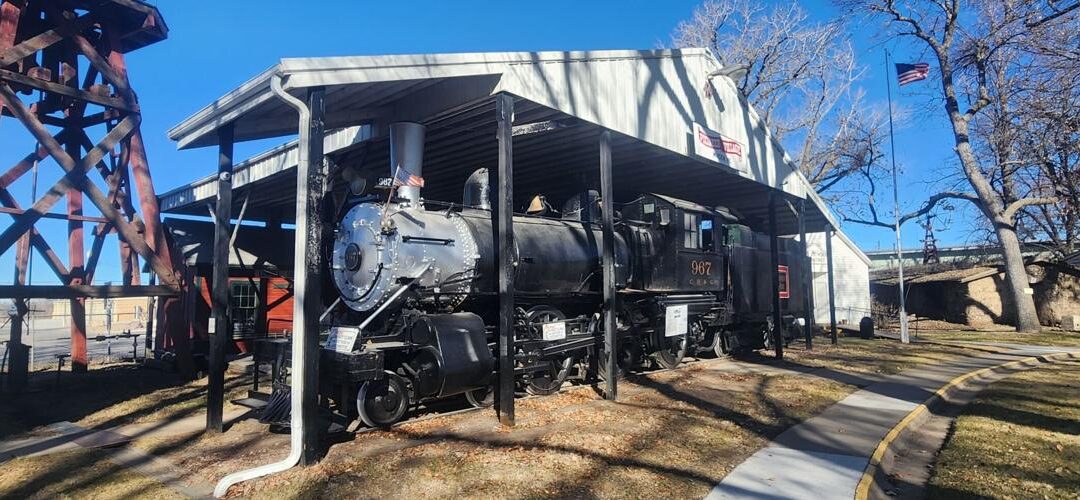American Confetti: Historic Lowell Depot
Once a thriving town located in northeastern Kearney County, Lowell, NE, served as the final stop of the Burlington & Missouri River Railroad and briefly emerged as a significant shipping hub in central Nebraska. The railroad extended from Chicago, with intentions to reach Ft. Kearney, located eight miles west of Lowell, where it would connect with the Union Pacific Railroad to the north of the Platte River. However, in 1872, the Union Pacific’s decision to impose exorbitant shipping charges on the B & M Railroad led to the abandonment of this plan, resulting in the completion of the railroad track in Lowell.
Named in honor of James Russell Lowell, an American poet, Lowell was established in 1871 on land acquired from the United States Government, totaling 640 acres. It became a hub for the U.S. Land Office for the Republican Valley and attracted homesteaders. Lowell earned the distinction of being the first incorporated town in Kearney County in 1872. It served as a pivotal point for shipping thousands of Texas Longhorns in 1872-73, guided by a signal light in town visible to cattlemen up to 50 miles away. Recognized as a rough frontier town, it became a haven for rowdy cowboys, gamblers, and gunslingers, featuring four saloons, a courthouse, a train depot, and other structures.
Beyond its proximity to the Platte River and the winter migration of Sand Hill Cranes, a notable site in Lowell is the Boot Hill cemetery situated southeast of the town. An imposing cement boot mounted on a stone platform to the east of the hill, erected in 1976 by the Alumni Association, serves as a memorial to over 25 pioneers who lost their lives in a range war involving cowboys and homesteaders.
By 1874, the town experienced a downturn influenced by various factors. The expansion of the railroad extended westward to Kearney establishing a regional trading hub along with the erection of a bridge across the Platte River at Kearney Junction to aid in transport.
Additionally, the land office was relocated to Bloomington. In 1878, the County Seat was shifted to Minden, a more central location within the County, which marked the official conclusion of Lowell’s status as a boom town. Businessmen from Lowell relocated to other areas in search of profit.
By the mid-1880s, the town’s population had dwindled to less than 50 residents. It continued to operate as a railroad stop until 1942, with the local school closing in 1963. Presently, the settlement consists of a few homes situated near the intersection of Lowell and Carpenter Roads.
Operating from 1872 to 1942, the Lowell Depot holds a special legacy. Each railroad agent who worked there inscribed their name and years of service in black ink on the wall. Although the Burlington Railroad planned to demolish the depot, Harold Warp was granted permission to relocate it to Pioneer Village on November 9, 1951. During its restoration, seven layers of flooring were uncovered, each representing a different era. Notably, one layer of flooring had journeyed with Helga Johannesen Warp, the mother of Harold Warp, and her brother Johannes from Norway to homestead in Kearney County.
At Harold Warp Pioneer Village, visitors can explore educational exhibits at the depot. One highlight is a replica of the golden spike that marked the meeting of the Union Pacific and Central Pacific Railroads on May 10, 1869, signifying the completion of the first transcontinental railroad in the US. Additionally, there’s a Western Union Clock that was synchronized through a wired connection to a coded signal from Washington, DC, powered by dry cell batteries. The display also features dated nails from railroad ties, various railroad lanterns and lamps, a railroad signal switch, a 1888 Narrow Gauge H.K. Porter Locomotive and a restored 1889 Baldwin Steam Locomotive (No. 967) for all ages to enjoy. These artifacts are part of the collection at the Lowell Depot display in Pioneer Village, where the history and significance of these items are preserved and shared.



Recent Comments